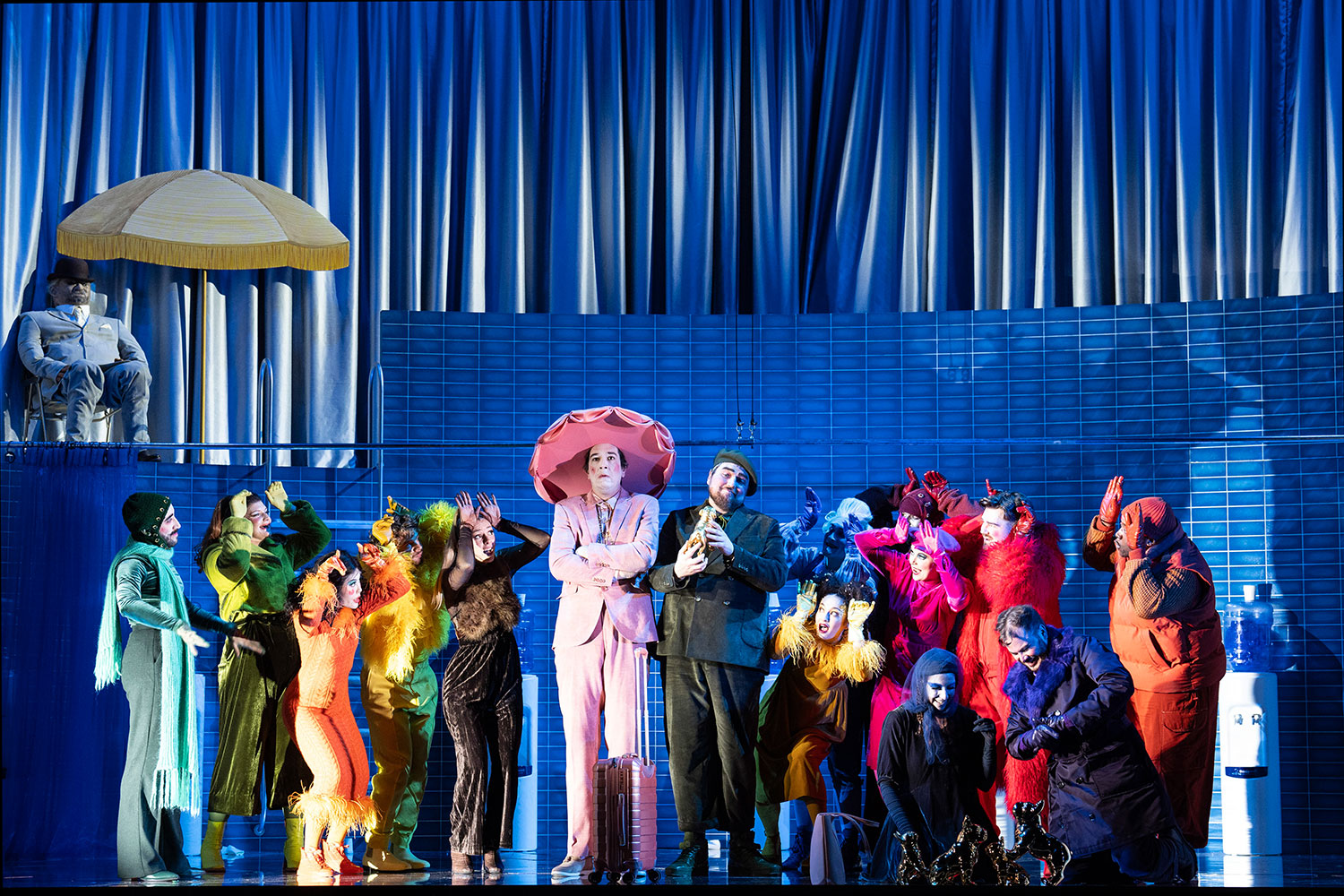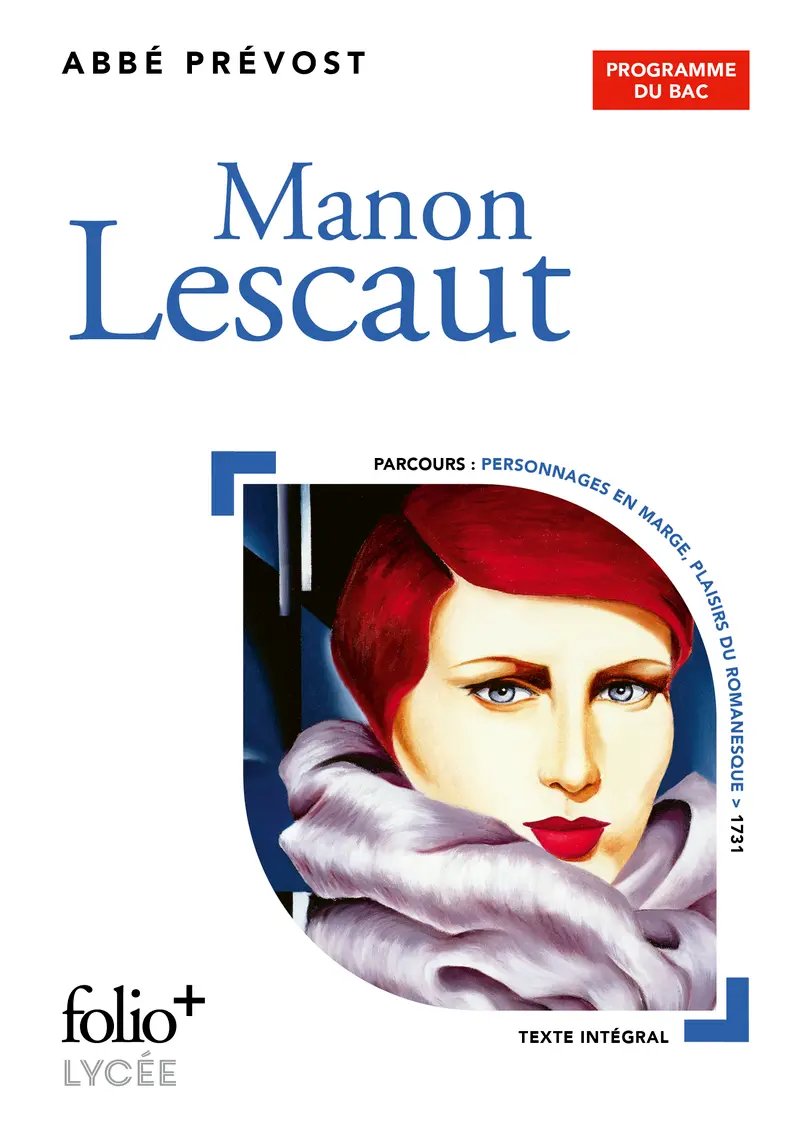Citations Manon Lescaut: A Deep Dive Into The Literary Masterpiece
Manon Lescaut, a timeless tale of love, passion, and betrayal, has captured the hearts of readers and scholars alike for centuries. First published in 1731, this French novel by Abbé Prévost remains a cornerstone of romantic literature. Its rich narrative and complex characters continue to inspire adaptations, discussions, and citations across various mediums. Whether you're a literature enthusiast or just someone curious about the impact of Manon Lescaut, this article dives deep into the citations that define its legacy.
This novel is more than just a story; it's a reflection of human nature, morality, and the choices we make in life. From its gripping plot to its unforgettable characters, Manon Lescaut has left an indelible mark on the literary world. So, if you're ready to explore the citations that have made this novel a classic, let's get started.
Throughout this article, we'll uncover the most iconic citations from Manon Lescaut, analyze their meanings, and explore how they've influenced modern literature. You'll discover why this novel continues to resonate with readers and why its themes remain relevant today. Let's dive in and uncover the secrets behind the citations of Manon Lescaut.
- Baddie Huh The Ultimate Guide To Understanding The Culture Lifestyle And Impact
- Spidey Must Resist Temptation Comics Shehulks Magnetic Pull
Table of Contents
- Introduction to Manon Lescaut
- Biography of Abbé Prévost
- Key Citations in Manon Lescaut
- Exploring Major Themes
- Influence on Modern Literature
- Adaptations and Interpretations
- Analysis of Key Passages
- Historical Context
- Critical Reception
- Conclusion and Takeaways
Introduction to Manon Lescaut
Manon Lescaut is not just a novel; it's a journey into the complexities of human emotions and relationships. The story revolves around the forbidden love between Des Grieux, a young nobleman, and Manon, a beautiful and ambitious woman. Their tumultuous relationship is filled with passion, betrayal, and ultimately, tragedy. This novel has been cited countless times in academic papers, literary discussions, and even pop culture references.
One of the most cited lines from Manon Lescaut is, "Love is a fire that burns regardless of its surroundings." This powerful citation encapsulates the essence of the novel's central theme: the overwhelming power of love and its ability to consume everything in its path. Scholars and readers alike have marveled at how Prévost captures the raw intensity of human emotion through his words.
Biography of Abbé Prévost
Before we delve deeper into the citations, let's take a moment to understand the man behind the masterpiece. Abbé Prévost, born Antoine François Prévost d'Exiles in 1697, was a French novelist, journalist, and Catholic priest. His life was as colorful as his writings, filled with adventures, controversies, and a deep passion for storytelling.
- Team Nasdas Nude Unveiling The Truth Behind The Controversy
- Puff 9k The Ultimate Guide To The Phenomenal Vape Device Thats Got Everyone Talking
Prévost's early years were marked by a series of contradictions. He studied for the priesthood but also indulged in worldly pleasures. His experiences as a soldier, journalist, and wanderer enriched his writing, giving it a unique authenticity that resonated with readers. Below is a brief overview of his life:
| Full Name | Antoine François Prévost d'Exiles |
|---|---|
| Birth Year | 1697 |
| Death Year | 1763 |
| Profession | Novelist, Journalist, Catholic Priest |
| Notable Works | Manon Lescaut, Memoirs and Adventures of a Man of Quality |
Key Citations in Manon Lescaut
Passion and Betrayal
One of the standout citations from Manon Lescaut is, "The heart has its reasons which reason knows nothing of." This line perfectly captures the irrational nature of love and how it often leads us down paths we never intended to take. Des Grieux and Manon's love story is a testament to this idea, as their passion blinds them to the consequences of their actions.
Another famous citation is, "To love and to be loved is to touch the divine." This line speaks to the transcendental nature of love, suggesting that true love is a sacred experience that elevates the human spirit. It's no wonder this citation has been referenced in countless works of literature and philosophy.
Exploring Major Themes
Love vs. Morality
A central theme in Manon Lescaut is the conflict between love and morality. The novel raises questions about whether love can justify immoral actions. Des Grieux and Manon's relationship is built on passion, but it also involves deceit, betrayal, and even criminal activity. This theme has been explored in various citations throughout the novel, with many scholars debating the moral implications of their choices.
One citation that highlights this theme is, "In the pursuit of happiness, we often lose sight of virtue." This line serves as a cautionary tale, reminding readers that while love may be all-consuming, it's important to consider the ethical implications of our actions.
Influence on Modern Literature
Manon Lescaut has had a profound influence on modern literature, inspiring countless authors and works. Its exploration of love, passion, and morality continues to resonate with readers today. Many contemporary novels and films have cited Manon Lescaut as a source of inspiration, drawing on its themes and characters to create their own stories.
For example, the novel's influence can be seen in works like "Madame Bovary" by Gustave Flaubert and "Anna Karenina" by Leo Tolstoy. Both of these novels explore similar themes of love, betrayal, and societal expectations. The citations from Manon Lescaut have become a part of the literary canon, influencing generations of writers and thinkers.
Adaptations and Interpretations
Manon Lescaut in Opera
One of the most famous adaptations of Manon Lescaut is the opera by Jules Massenet. First performed in 1884, this opera captures the emotional intensity of the novel through its music and libretto. The opera has become a staple of the classical music repertoire, with its famous aria "Adieu, notre petite maison" becoming one of the most cited moments in the adaptation.
Another notable adaptation is the opera by Giacomo Puccini, which premiered in 1893. Puccini's version focuses on the tragic aspects of the story, emphasizing the doomed nature of Des Grieux and Manon's love. Both operas have contributed to the novel's legacy, bringing its citations and themes to new audiences around the world.
Analysis of Key Passages
Let's take a closer look at some of the key passages from Manon Lescaut and analyze their significance. One passage that stands out is when Des Grieux reflects on his love for Manon, saying, "She was my heart's desire, my soul's companion, and my life's ruin." This passage perfectly encapsulates the duality of their relationship, highlighting both its beauty and its destructive nature.
Another passage worth analyzing is when Manon says, "I would rather be the mistress of a man I love than the wife of a man I despise." This line speaks to her desire for freedom and autonomy, challenging societal norms of the time. It's no wonder this citation has been referenced in feminist literature and discussions about women's rights.
Historical Context
Understanding the historical context of Manon Lescaut is essential to fully appreciating its citations and themes. Written during the Enlightenment, the novel reflects the social and cultural changes of the time. The 18th century was a period of intellectual and scientific advancement, but it was also a time of strict societal norms and expectations.
Prévost's novel challenges these norms by exploring the complexities of human emotions and relationships. The citations from Manon Lescaut reflect this tension, offering readers a glimpse into the struggles and desires of people living during this era. By examining the historical context, we can better understand the significance of these citations and their enduring relevance.
Critical Reception
Manon Lescaut has received mixed reviews from critics since its publication. Some have praised its emotional depth and psychological insight, while others have criticized its moral ambiguity and perceived immorality. Despite these criticisms, the novel has remained a popular and influential work, inspiring countless adaptations and discussions.
One critic noted, "Manon Lescaut is a novel that forces readers to confront uncomfortable truths about love and morality." This sentiment is reflected in many of the citations from the novel, which continue to spark debate and discussion among scholars and readers alike. The critical reception of Manon Lescaut highlights its enduring relevance and its ability to provoke thought and reflection.
Conclusion and Takeaways
In conclusion, Manon Lescaut is a novel that has left an indelible mark on the literary world. Its rich narrative, complex characters, and powerful citations continue to inspire and challenge readers today. Whether you're exploring its themes of love and morality or analyzing its influence on modern literature, Manon Lescaut offers something for everyone.
As we've seen throughout this article, the citations from Manon Lescaut are more than just words on a page; they're windows into the human experience. They capture the essence of love, passion, and the choices we make in life. So, the next time you encounter a citation from Manon Lescaut, take a moment to reflect on its meaning and how it relates to your own life.
Don't forget to leave a comment or share this article with your friends and fellow literature enthusiasts. Together, we can continue the conversation about Manon Lescaut and its lasting legacy. Happy reading!



Detail Author:
- Name : Kailey Zieme
- Username : rutherford.lonie
- Email : jstrosin@leffler.com
- Birthdate : 1984-04-15
- Address : 279 Kovacek Port Trantowland, KY 64085-9429
- Phone : 218-718-5060
- Company : Bergnaum, O'Kon and Bergstrom
- Job : Construction
- Bio : Voluptatibus et in aut ut. Molestiae quia et eligendi cupiditate deserunt ullam culpa. Magnam incidunt sunt et molestias.
Socials
tiktok:
- url : https://tiktok.com/@wolffc
- username : wolffc
- bio : Laborum cupiditate laudantium ea optio non.
- followers : 3079
- following : 2098
facebook:
- url : https://facebook.com/wolffc
- username : wolffc
- bio : Officia tempora error rerum eum. Nulla ea cumque dolor.
- followers : 3495
- following : 1593